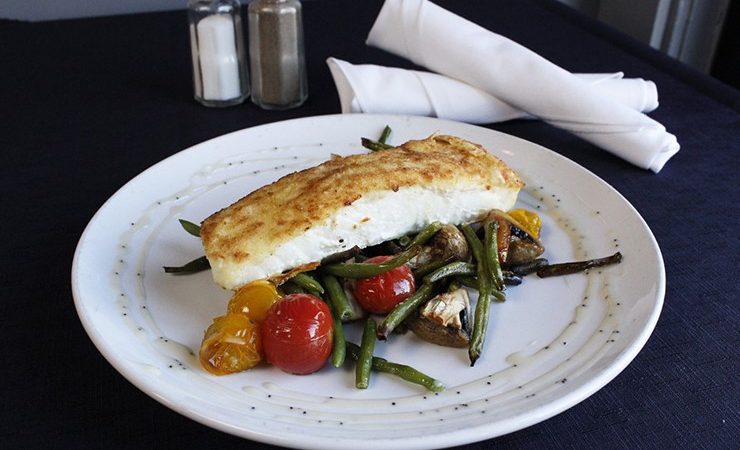Exploring the Feline Palate: Can Cats Eat Watermelon?

Cats are notorious for their finicky eating habits, and as responsible pet owners, we’re always curious about what we can and cannot feed our feline friends. Watermelon, a refreshing and hydrating fruit enjoyed by humans during the hot summer months, raises questions about its safety for cats. In this article, we delve into the intriguing question: Can cats eat watermelon?
Understanding a Cat’s Diet:
Before we dive into the specifics of watermelon consumption, it’s crucial to understand the typical feline diet. Cats are obligate carnivores, which means their diet primarily consists of meat. Unlike omnivores, cats have specific nutritional requirements that are met through a diet rich in animal proteins. While cats can enjoy occasional plant-based treats, their bodies are not designed to derive essential nutrients from fruits and vegetables.
Watermelon Composition:
Watermelon is a low-calorie fruit with high water content, making it a refreshing and healthy choice for humans. It is packed with vitamins like A and C, as well as antioxidants such as lycopene. However, the nutritional needs of cats differ significantly from those of humans. Cats require specific nutrients like taurine, which is abundant in animal-based proteins but limited in fruits like watermelon.
Can Cats Safely Eat Watermelon?
The answer to whether cats can eat watermelon is nuanced. While watermelon itself is not toxic to cats, there are essential considerations to keep in mind. Cats lack the digestive enzymes necessary to break down and derive nutrients from plant matter efficiently. Therefore, feeding watermelon to your cat should be done cautiously and in moderation.
- Remove Seeds and Rind: Cats should only be offered small, seedless, and properly prepared portions of watermelon. The seeds can pose a choking hazard and may cause gastrointestinal issues. Additionally, the tough rind is difficult for cats to digest and may lead to stomach discomfort.
- Limit the Amount: Moderation is key when it comes to introducing any non-meat treat into a cat’s diet. A small, occasional piece of watermelon is acceptable, but it should not become a staple. Excessive consumption may lead to digestive upset or diarrhea.
- Monitor for Allergic Reactions: Cats, like humans, can have allergies. Before offering watermelon to your feline friend, observe for any signs of allergic reactions such as itching, swelling, or difficulty breathing. If any adverse reactions occur, discontinue feeding watermelon immediately and consult your veterinarian.
- Avoid Flavored or Processed Varieties: Cats are sensitive to additives and preservatives, which are often present in flavored or processed watermelon products. Stick to plain, fresh watermelon to ensure your cat isn’t exposed to potentially harmful substances.
- Consult Your Veterinarian: If you have any doubts or concerns about introducing watermelon into your cat’s diet, it’s always wise to consult with your veterinarian. They can provide personalized advice based on your cat’s health, age, and dietary needs.
Potential Benefits of Watermelon for Cats:
While watermelon is not a necessary component of a cat’s diet, it does offer some potential benefits when given in moderation:
- Hydration: The high water content in watermelon can contribute to your cat’s hydration, especially during hot weather.
- Vitamins and Antioxidants: Watermelon contains vitamins A and C, as well as antioxidants like lycopene, which may have some health benefits for cats.
Conclusion:
In conclusion, while watermelon is not toxic to cats and can be offered as an occasional treat, it should never replace the primary components of a feline diet. Feeding cats watermelon requires careful preparation, including removing seeds and rind, and monitoring for any adverse reactions. Always prioritize a balanced diet that meets your cat’s nutritional needs, consulting your veterinarian for guidance on suitable treats and snacks. As responsible pet owners, our goal is to enhance our feline companions’ well-being while respecting their unique dietary requirements.
- Is watermelon toxic to cats? No, watermelon is not toxic to cats. However, it should be fed in moderation and with careful consideration for potential hazards like seeds and rind.
- Can cats eat watermelon seeds? It is advisable to remove seeds before offering watermelon to your cat. While a small number of seeds may not cause harm, they can pose a choking hazard or lead to gastrointestinal issues if ingested in larger quantities.
- What about watermelon rind? Cats have difficulty digesting the tough rind of watermelon, so it is recommended to remove it before offering the fruit to your cat. Rind ingestion can lead to stomach discomfort.
- Are there any nutritional benefits for cats in watermelon? Watermelon is not a necessary component of a cat’s diet, but it does contain vitamins A and C, as well as antioxidants like lycopene. These can contribute to your cat’s overall health when given in moderation.
- How much watermelon can I feed my cat? Moderation is key. Small, occasional pieces of fresh, seedless watermelon are acceptable. Excessive consumption may lead to digestive upset or diarrhea.
- Can kittens eat watermelon? While kittens have specific dietary needs for growth, small, well-prepared portions of watermelon can be offered to them as an occasional treat. Always consult your veterinarian for advice on feeding kittens.
- What if my cat has allergies? Cats, like humans, can have allergies. Watch for signs of allergic reactions such as itching, swelling, or difficulty breathing after introducing watermelon. If any adverse reactions occur, discontinue feeding and consult your veterinarian.
- Can cats eat flavored or processed watermelon products? It is best to avoid flavored or processed watermelon products, as they may contain additives and preservatives that can be harmful to cats. Stick to plain, fresh watermelon to ensure your cat’s safety.
- Will watermelon make my cat gain weight? Watermelon is a low-calorie fruit, but like any treat, it should be given in moderation. Excessive consumption of treats, including watermelon, can contribute to weight gain. Ensure that watermelon is part of a balanced diet.
- Can diabetic cats eat watermelon? Cats with diabetes require a carefully managed diet. While watermelon itself is low in sugar, it’s crucial to consult your veterinarian before offering any new treats to a diabetic cat.
- Should I consult my vet before giving my cat watermelon? Yes, it’s always advisable to consult your veterinarian before introducing new foods into your cat’s diet, including watermelon. They can provide personalized advice based on your cat’s health, age, and dietary needs.
Remember, the key is to offer watermelon as an occasional treat, ensuring that it complements rather than replaces the essential components of your cat’s diet. If in doubt, seek guidance from your veterinarian for the best approach based on your cat’s individual circumstances.






